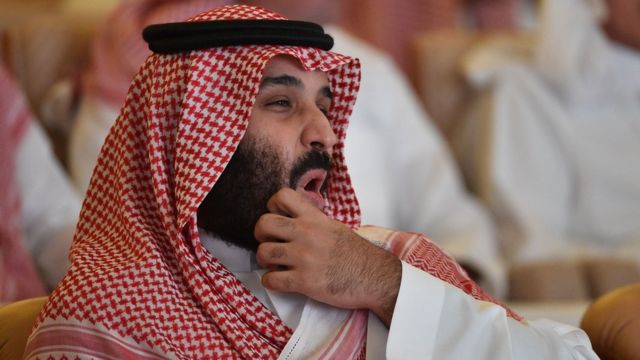On 18 November 2025, Saudi Crown Prince Mohammed bin Salman will arrive in Washington for a visit framed publicly around diplomacy, economic cooperation, and strategic alignment. Yet the most critical file—human rights—remains deliberately sidelined, once again revealing the political cost of treating repression as a negotiable issue rather than a red line.
This visit does not occur in a vacuum. It follows years of systematic crackdowns on academics, writers, activists, women’s rights defenders, clerics, entrepreneurs, and ordinary citizens whose only alleged offence was expressing an opinion, supporting reform, or refusing silence. Despite official attempts to market selective “reforms” abroad, the reality inside the Kingdom points in the opposite direction: expanded prison sentences, politicized trials, coerced silence, and the recurring pattern of re-arresting individuals shortly after release.
In the days leading up to the visit, 11 international human rights organisations—including Human Rights Watch—issued a joint appeal urging the US administration and Congress to raise rights violations during official discussions and to pressure Saudi authorities to release prisoners of conscience. Their appeal reinforces what the global rights community has repeatedly documented: the repression has not slowed, it has evolved; the appearances have changed, the policies have not.
The United States has long positioned itself as a promoter of democratic values, yet its relationship with Saudi Arabia continues to demonstrate a different hierarchy: energy policy, defense deals, and geopolitical interests consistently override accountability, transparency, and human rights. When the messaging celebrates democracy but the meetings reward authoritarian behavior without conditions, the credibility gap becomes impossible to ignore.
The message delivered by such visits—intended or not—is clear:
- that repression carries no diplomatic consequences
- that lengthy prison sentences for speech are tolerable if strategic interests align
- that the state’s systematic abuse of anti-terror and cybercrime laws against peaceful expression is an internal matter, not a bilateral concern
- and that the lives of imprisoned critics are negotiable, while military and economic partnerships are not
Inside Saudi prisons are scholars serving decades for sermons, writers sentenced for articles, women jailed for reform demands, and citizens detained for posts or private conversations. Many are denied legal safeguards, medical care, family contact, and even public acknowledgment. Some are released only to be re-arrested under new pretexts. These are not legal proceedings—they are containment strategies.
No partnership, regardless of strategic importance, can be credible if it ignores the most fundamental question: what happens to those who speak freely in Saudi Arabia? Without a direct and firm confrontation on this issue in Washington, the visit risks becoming a political endorsement of impunity.
Silence in diplomatic rooms does not translate into stability; it translates into permission. And every meeting that excludes the names of prisoners, the conditions of detention, the arbitrary sentences, and the machinery that produces them, reinforces the belief that repression can continue without cost.
Human rights are not a ceremonial clause to be appended to press statements. They are a test—of alliances, of political integrity, and of the willingness to place human life above transactional convenience.

